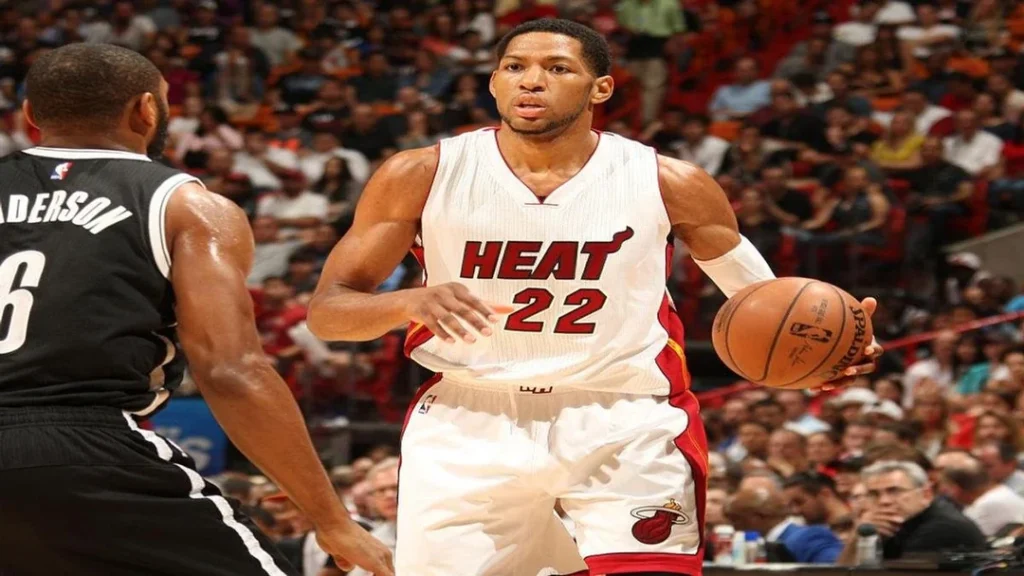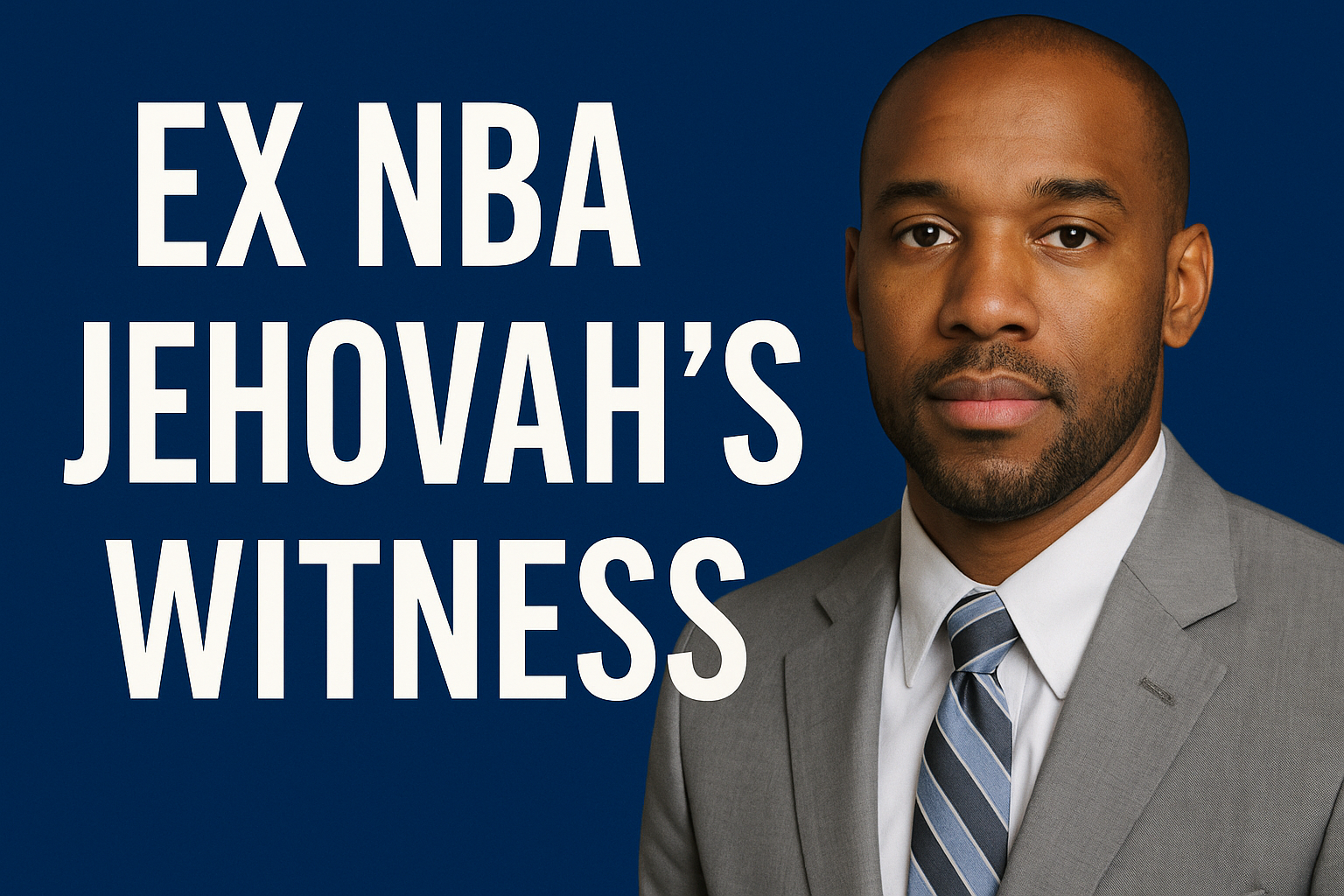There are few tales in professional basketball that are more intriguing than those of athletes who leave the sport not because of injury or declining age, but because of a call to faith. The path of an ex NBA Jehovah Witness is one such intriguing tale, interweaving faith, fame, and personal faith.
A Rare but Strong Transformation
The NBA is infamous for its grind—tough schedules, great fame, and big contracts. For a player to walk away from all of that willingly is not typical. But for those who do become ex NBA Jehovah Witness, the choice is sometimes about something greater than basketball; it’s about devoting oneself to spiritual beliefs that require a different lifestyle.
ex NBA Jehovah Witness have a reputation for being deeply committed to evangelism, not engaging in political activities or military service, and a high emphasis on moral behavior. These are frequently at odds with the lifestyle and expectations of professional athletes. For an NBA player, particularly one who is well known internationally, becoming a part of the faith may involve difficult personal and professional decisions.
Prominent Ex NBA Players Who Became ex NBA Jehovah Witness
Though not a common phenomenon, several high-profile instances of ex-NBA stars turning to or being born as Jehovah’s Witnesses have emerged, ultimately allowing their faith to influence significant life choices.
1. Dewayne Dedmon
Dewayne Dedmon’s tale is particularly meaningful because he is a product of a ex NBA Jehovah Witness family. His mother was very devout, and Dedmon was originally kept from playing basketball as a result of the religion’s prohibition against competition and worldly engagement. He beat the odds to reach the NBA, but his relationship with the faith has always been one of personal and complicated ties.
2. Darren Collison
Arguably the most well-known example of a former NBA Jehovah Witness, Collison stunned the basketball community in 2019 by announcing he was retiring from the NBA at the age of 31 to concentrate on his faith. Collison was a consistent point guard and had only just concluded a good season for the Indiana Pacers. His declaration consisted of a letter in which he stated that his relationship with Jehovah was superior to any NBA career. He later returned to the league for a brief time but did not recoil from proclaiming his spiritual values.
3. Danny Granger
Another ex-Pacer, Danny Granger, was also connected to the faith. Although Granger did not officially retire based on religious motives, he has been rumored to have been tied to ex NBA Jehovah Witness beliefs and embodied those morals in his demeanor and off-court living.
The lifestyle in the NBA is more than just playing basketball. The players are usually surrounded by celebrity culture, endorsement deals, overseas travel, and public visibility. This is something that ex NBA Jehovah Witness, who stress humility, modesty, and detachment from the affairs of the world, would find difficult to square with their religion.
In addition, Jehovah’s Witnesses do not celebrate birthdays or most holidays, avoid saluting flags, and are discouraged from a great many entertainments. These doctrines can make the ordinary NBA life daunting or even spiritually perilous.
The Inner Conflict: Conviction Over Career

For an ex NBA Jehovah Witness, the most challenging part of their journey is often internal. Walking away from a profession you’ve trained for your whole life requires more than just belief—it demands conviction. But for those who leave the game, the decision is often seen not as a sacrifice but a deliverance.
In Darren Collison’s case, his open letter was a powerful affirmation of this mentality. He wrote “about how wonderful it felt to share with others about the Bible and spiritually serve my community.” The discipline, moral integrity, and devotion inculcated by Jehovah’s Witnesses provided him something he didn’t think the NBA ever could: peace of a world spiritually grounded.
Most ex NBA Jehovah Witness players assume positions within their faith communities. They can engage in door-to-door ministry, Bible study groups, and missionary work among others. Others remain in basketball but in less dynamic roles—coaching, mentoring, or charity work—where their religion is not violated.
Social media has also been used to assist in making fans understand and appreciate these decisions. Although some of the responses are critical or skeptical, other fans are showing praise for players who prioritize spiritual fulfillment over fame.
FAQs About Ex NBA Jehovah Witnesses
- What does it mean to be a Jehovah’s Witness?
Jehovah’s Witnesses are a Christian denomination that practice door-to-door evangelism, aversion to political or military service, and unconventional interpretations of scripture. They emphasize leading a morally sound life, independent of the secular world.
- Why would an NBA player become a Jehovah’s Witness?
Most are either born into the faith or find it later in life. The rigors of the NBA lifestyle conflict with much of what ex NBA Jehovah Witness teach, and some players opt for faith rather than fame.
- Is Darren Collison still a Jehovah’s Witness?
Yes, Collison is still an active Jehovah’s Witness. He returned to basketball briefly but has always insisted that his faith comes first.
- Are there any current NBA players who are Jehovah’s Witnesses?
As of now, there are no high-profile active NBA players publicly identifying as Jehovah’s Witnesses, but there may be individuals who practice the faith more privately.
- What do Jehovah’s Witnesses think of competitive sports?
Although not strictly forbidden, competitive sports are discouraged because they focus so much on individual glory, ferocity, and participation in worldly activities, which detract from spiritual objectives.
- What do the careers of former NBA Jehovah Witnesses do?
Once retired from the NBA, they go back into community service, missionary work, or very low-key careers that enable them to continue adhering to their spiritual beliefs without the interruption of celebrity.
Final Thoughts
The life of an ex NBA Jehovah Witness isn’t merely one of stepping away from basketball; it’s one of stepping toward something more profound. In a society where fame, wealth, and achievement are so frequently lauded, the decision to prioritize faith and spiritual purpose is one that is radically, counterculturally-minded. It challenges us to consider: What is most important at the end of the day?
For these old players, the response is obvious. Whether it’s Darren Collison’s letter to the editor or Danny Granger’s unassuming faithfulness, their stories remind us that life isn’t just a game—it’s about what you believe and who you become when the lights go down.

